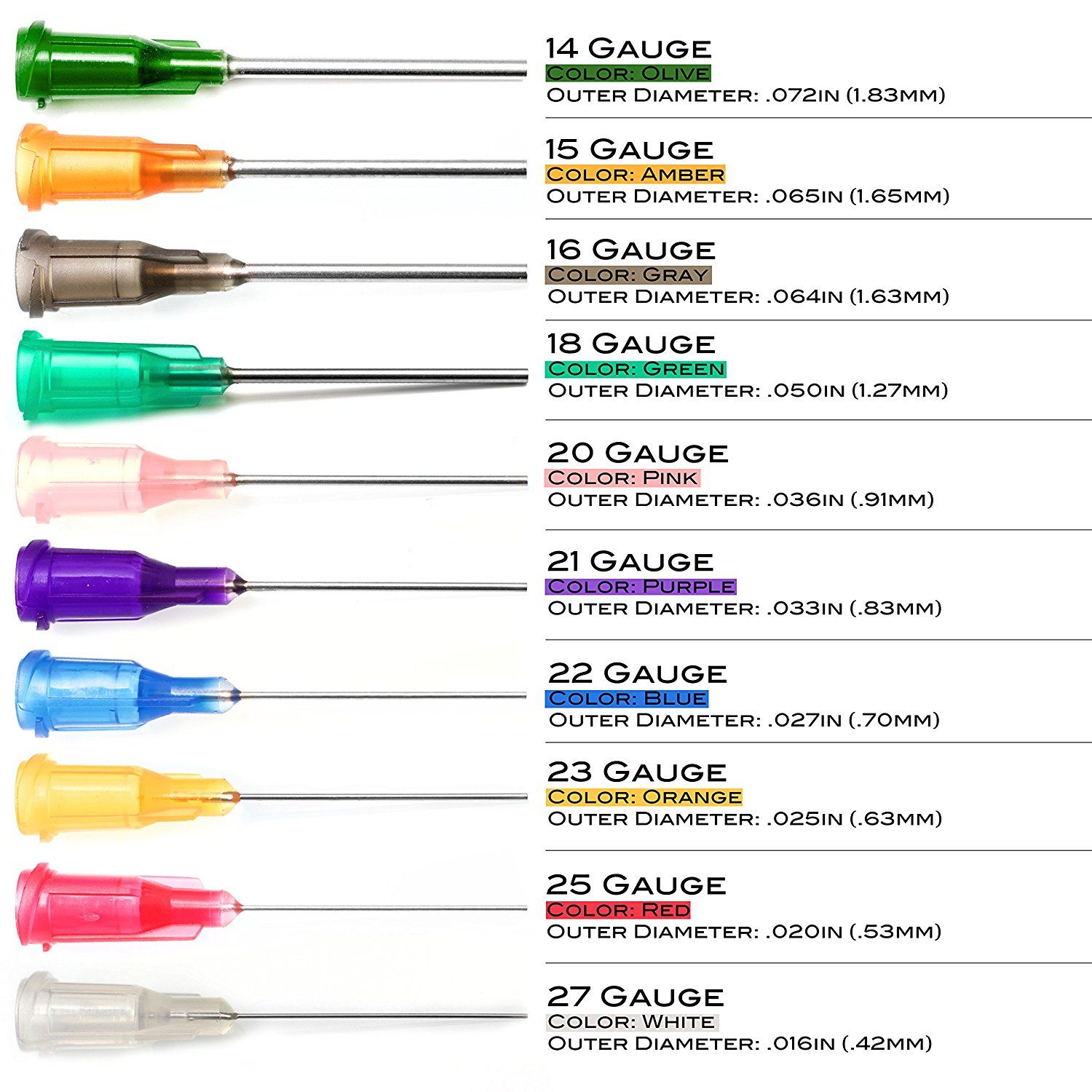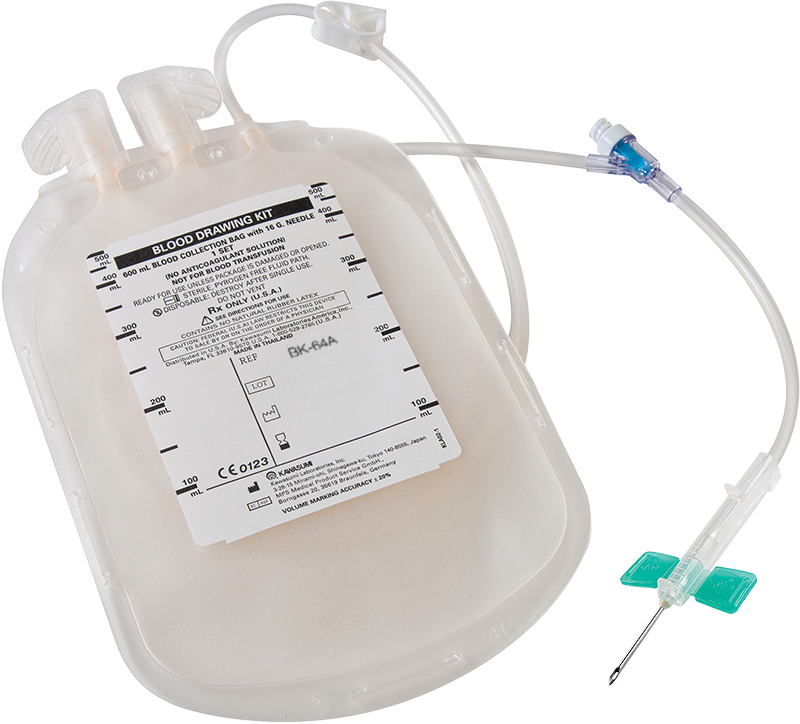What Gauge Needle For Drawing Blood
What Gauge Needle For Drawing Blood - While the size can vary, most needle sizes are 21 to 23 gauge. Web the common butterfly needles are 1/2 to 3/4 inches long and come in a range of gauges, with 21 and 23 gauge the most frequently used. Web butterfly needles are measured in gauges and typically range in size from 18 gauge to 27 gauge. When selecting a butterfly needle size for blood collection, it is important to consider the patient's vein condition and size. This is particularly useful when multiple vials of blood need to be collected. Web needles are available in a range of sizes, from the thinnest (typically around 30 gauge) to the thickest (usually around 13 gauge). 21 gauge needles are commonly used for injections that require a larger needle size, such as intramuscular injections and blood draws. Sterile gloves, goggles, face shields, and other ppe. Web when it comes to the day of the blood collection, stay hydrated, stay warm and try to stay as calm as possible (try taking some deep breaths). In this article, we will explore the importance of needle gauge in blood draw procedures. Web butterfly needles come in various gauges, ranging from 18 to 27 gauge. This size is chosen for a good reason. It is ideal for drawing blood from adult patients with normal veins. Web the blood draw gauge needle is the specific needle size used to draw blood from a patient. Healthcare professionals should consider factors such as vein size,. Web it is important to select the appropriate gauge needle based on the purpose of the blood draw. Web 21g needles are the most common gauge of needles used for routine blood draws and venipuncture. Web in blood donation, two common needle gauges are typically used: It’s large enough to allow the smooth and rapid flow of blood, which is. Web choosing the right size. The choice of gauge depends largely on the patient’s vein size and the viscosity of the blood. Choosing the right needle gauge. It’s large enough to allow the smooth and rapid flow of blood, which is essential during a donation. This size is chosen for a good reason. Smaller gauge needles are used if an injectable fluid is thick or if blood is being collected for transfusion. The device comes with design. The size of the needle you should use for any particular task depends on the material you are using and the desired effect. It’s large enough to allow the smooth and rapid flow of blood, which. Here are some key points to consider when choosing a 21 gauge needle: Web 21g needles are the most common gauge of needles used for routine blood draws and venipuncture. However, for intravenous medication administration, a smaller gauge butterfly needle may be preferred. Web butterfly needle size ranges from 18 to 27 gauge bore. The size of the needle you. Web the common butterfly needles are 1/2 to 3/4 inches long and come in a range of gauges, with 21 and 23 gauge the most frequently used. 16 gauge and 17 gauge. However, for individuals with smaller or fragile veins, a smaller gauge needle, such as 20 or 21 gauge, may. Web needle gauge refers to the diameter of the. Web butterfly needles come in various gauges, ranging from 18 to 27 gauge. The phlebotomist assigned to perform your blood draw you will ask you several questions before they get started, such as your date of birth and full name. For most patients, their veins are of a size and stability that is best suited for the 21g needle. It. This makes the process faster and reduces the time the donor spends in the chair. The higher the gauge, the smaller the needle. Labels, tubes, and order requisition forms. Thicker gauge needles may be necessary for patients with larger veins or conditions that require a. Web the standard needle for a blood donation is typically a larger gauge, often around. Web most butterfly needles range from 18 to 27 gauge. This size is chosen for a good reason. In this article, we will explore the importance of needle gauge in blood draw procedures. Healthcare professionals should consider factors such as vein size, patient population, and type of test when selecting a needle gauge. Web the common butterfly needles are 1/2. The smallest gauge, 25, is used primarily with pediatric patients. Labels, tubes, and order requisition forms. Web a larger gauge needle, such as 16 or 17 gauge, is commonly used for regular whole blood donations as it allows for a faster blood flow. Web the 21 gauge needle is the standard gauge needle for drawing blood. Web butterfly needles come. Web 21g needles are the most common gauge of needles used for routine blood draws and venipuncture. While the size can vary, most needle sizes are 21 to 23 gauge. Web the blood draw gauge needle is the specific needle size used to draw blood from a patient. It varies depending on the purpose of the blood draw and the patient's vein size. The phlebotomist assigned to perform your blood draw you will ask you several questions before they get started, such as your date of birth and full name. This is particularly useful when multiple vials of blood need to be collected. 16 gauge and 17 gauge. 1 the short needle length allows the phlebotomist to insert it at a shallow angle that can increase the ease of use. A 16 gauge needle is larger in diameter compared to a 17 gauge needle, meaning it has a wider opening. The smallest gauge, 25, is used primarily with pediatric patients. For routine venipuncture, which involves drawing blood from a vein for diagnostic testing, a 21 or 22 gauge needle is typically used. Web for blood collection, a standard butterfly needle with a larger gauge might be used to facilitate a faster flow of blood. Smaller gauge needles are used if an injectable fluid is thick or if blood is being collected for transfusion. For most patients, their veins are of a size and stability that is best suited for the 21g needle. Here are some key points to consider when choosing a 21 gauge needle: It’s large enough to allow the smooth and rapid flow of blood, which is essential during a donation.
Phlebotomy Syringe Draw Procedure Blood Collection (RxTN) YouTube

Butterfly Needle for Blood Draw How It Works and Why It’s Used

Sterican Blood Drawing Needles Buy Here

Basic Conversions And Measurements In Interventional Radiology Stepwards

KShield Advantage® Blood Drawing Kit Kawasumi

Blood Drawing Archives Kawasumi

Color Code Gauge Length Needle Phlebotomy, Nurse, Phlebotomy study

Exel International MultiSample Blood Draw Needles Green Hub; 21 G x 1.
Blood Draw/Venipuncture Technique and Overview The Procedure Guide

Needle Gauge Size Chart E Phlebotomy Training
This Makes The Process Faster And Reduces The Time The Donor Spends In The Chair.
Thicker Gauge Needles May Be Necessary For Patients With Larger Veins Or Conditions That Require A.
Tables Showing Needle Sizes For Blood Draws.
Labels, Tubes, And Order Requisition Forms.
Related Post: